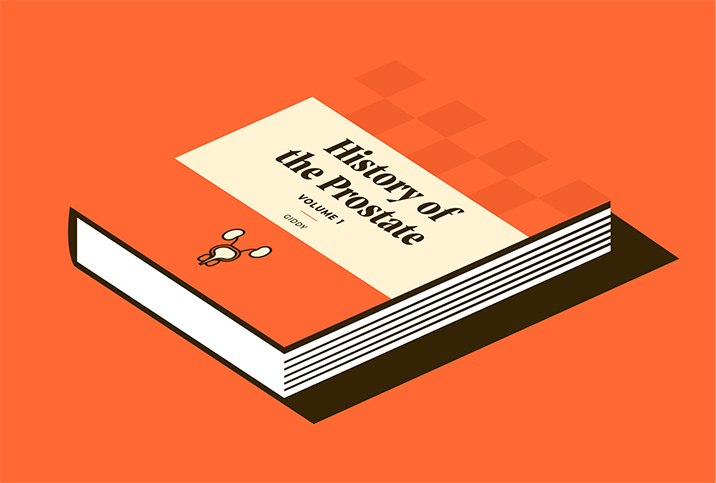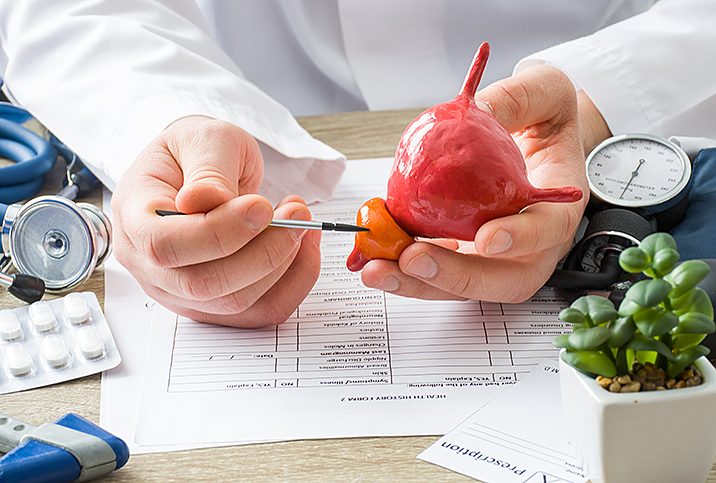How to Maintain Prostate Health

About 13 percent of men will develop prostate cancer at some point in their lives, and two-thirds of them will die, according to the Centers for Disease Control and Prevention (CDC).
These alarming statistics underscore the importance of maintaining prostate health as you age. Fortunately, there are plenty of ways to do this, including simple lifestyle switches.
Diet and prostate health
Although increased risks of prostate cancer have been linked to hereditary factors, some experts also believe that high-fat, high-sugar diets may also have a negative effect on prostate health. So, you'll need to kick the junk food habit.
In addition, try replacing habits such as drinking soda or eating red meat with drinking water and eating lean protein, such as chicken or fish.
Packing nutrient-rich, prostate-friendly foods into your diet is another step to consider:
- Coffee, which can lower the chances of prostate cancer if consumed regularly.
- Foods that are red in color, such as tomatoes and watermelon, contain a prostate cancer-fighting antioxidant known as lycopene.
- Nutrient-rich veggies and fruits, which contain vitamins and minerals.
- "Good" fats, such as avocados or olive oil instead of butter.
You may also want to curb alcohol intake or make the switch to an occasional glass of red wine, which is full of antioxidants.
Quit smoking
While smoking has been linked to heart disease and lung cancer, doctors believe it also contributes to prostate cancer. Even if you've smoked for years, remember that you're never too old to quit.
Prostate massage
Although a prostate massage may seem uncomfortable, since it requires insertion into the rectum, some studies have shown that regular prostate massages can have health benefits. However, more research is necessary to determine whether prostate massage can directly decrease the risk of prostate cancer, and prostate massage is not typically offered in a medical clinic.
Of note, at least one long-term study shows that ejaculation is healthy for the prostate: high ejaculation frequency was linked to a decreased risk of prostate cancer.
Exercise regularly
Exercise and physical activity are yet another way to combat prostate cancer and prevent recurrence for men who have already had the disease.
If you live a somewhat sedentary lifestyle, don't stress. Physical activity doesn't have to require extreme athleticism and heart-pounding workouts. Recommendations of 150 minutes of exercise per week are recognized as being sufficient to get started.
If you're out of shape, try the following:
- Going for a walk
- Gardening and yardwork
- Golfing or bowling
- Biking at a leisurely pace
- Dancing
The more active your lifestyle, the better chance you may have at combating prostate cancer, as well as improving recovery from prostate cancer. More vigorous activities may include:
- Running
- Team sports such as soccer, basketball or hockey
- Weightlifting
- CrossFit training
The key to a successful exercise program is to stay within your current physical means and slowly work your way up to more strenuous activities. By doing so, you'll build your body's tolerance to exercise, as well as prevent burnout or quitting altogether.
Check in with your doctor
Regular meetings with your doctor are essential to maintaining prostate health. As soon as you hit the age of 50, you should schedule time with your doctor to discuss prostate cancer screenings; men with a family history of prostate cancer or prostate issues may consider earlier evaluation. African American men are particularly susceptible to prostate cancer and should begin regular tests from age 40.
If the doctor determines you are at risk, you'll have to undergo both a digital rectal exam (DRE) and a prostate-specific antigen (PSA) test. If you're not at risk, talk to your doctor about how often you should get a DRE or a PSA. There are both risks and benefits to prostate cancer screening, and your doctor can determine what's best for you to assure your prostate continues to be healthy.
Most cases of prostate cancer are asymptomatic. Symptoms of prostate issues in general might include trouble urinating, blood in the urine, painful ejaculation and problems with the consistent flow of urine. These symptoms could be evidence of benign enlargement of the prostate, for example. Consult your doctor if you experience any of these symptoms.
Even though the idea of any sort of rectal exam may make you feel awkward, don't let momentary discomfort prevent you from getting important medical care. It's a sad truth that as you get older, your chances of prostate cancer rise. Taking a proactive approach and changing bad lifestyle habits not only keeps your prostate healthy to the best of your abilities, but you'll also live a healthier life overall.


















